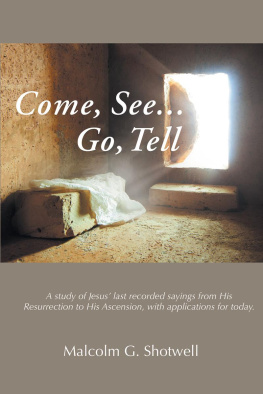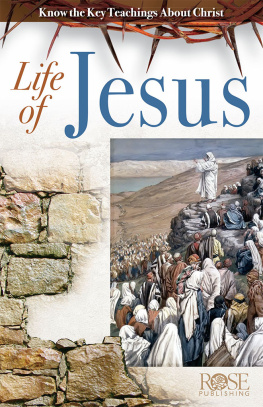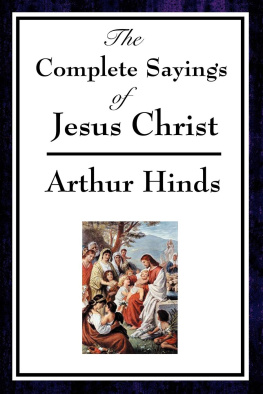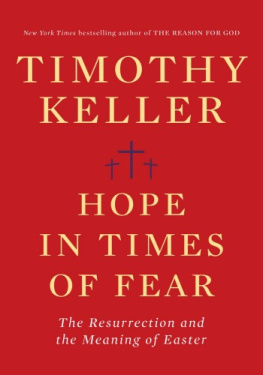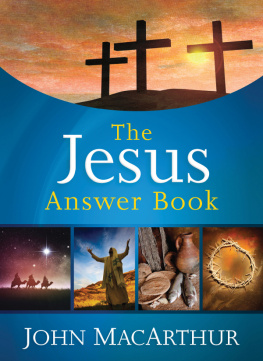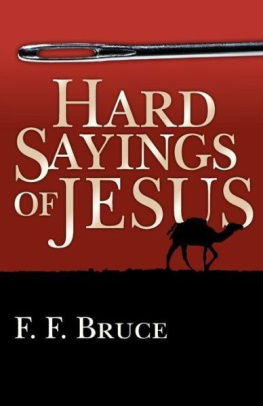Chapter 1
Sayings on Easter Sunday
John 20:1123
- Woman, why are you weeping? Whom are you looking for? (John 20:15). __________________________________________________
- Mary! (John 20:16) ______________________________________
- Do not hold on to me, because I have not yet ascended to the Father. But go to my brothers and say to them, I am ascending to my Father and your God. (John 20:17) ________________________________
- Peace be with you. (John 20:19). ____________________________
- Peace be with you. As the Father has sent me, so I send you.(John 20:21) ____________________________
- Receive the Holy Spirit. If you forgive the sins of any, they are forgiven them. If you retain the sins of any, they are retained. (John 20: 22b23) ________________________________________________________

These first recorded sayings after the crucifixion, according to the disciple John, were to Mary Magdalene.
Mary is weeping. The tomb is empty. Two angels are sitting where Jesuss body had been lying. They ask Mary why she is weeping, and she replies, They have taken away my Lord, and I do not know where they have laid him.
She turns and sees Jesus, but she does not recognize him. Then she hears, Woman, why are you weeping? Whom are you looking for?
Mary still does not recognize Jesus. She assumes him to be the gardener and guesses that he is the one who has removed the body. Then she hears one word, Mary! He called her name! It was personal! The mystery was gone, the tomb was empty, and the question was answered!
Rabbouni! Mary said, meaning teacher!
Dont you like it when people remember your name? Put yourself in the shoes of Mary. Dont you imagine she was overjoyed when she heard her resurrected Lord speak her name?
Then Jesus says, Do not hold on to me, because I have not yet ascended to the Father. But go to my brothers and say to them, I am ascending to my Father and your Father, to my God and your God.
Mary had come and seen the risen Lord. Now at Jesuss command, she goes to tell the disciples the good news. Come, SeeGo, Tell! An invitation and a commission from Jesus for all ages for all times.
The scene changes. It is Easter evening. The disciples had locked themselves in a room for fear of the Jews. The Jewish leaders had killed Jesus. Would the disciples be next? Jesus appears and says, Peace be with you.
The conventional Jewish greeting was shalom , which is translated as peace be with you. This greeting implies a prayer to God for the well-being of the person or persons addressed.
After the greeting, Jesus shows them his nail-pierced hands and his sword-scarred side. He repeats, Peace be with you, and adds, as the Father has sent me, so I send you.
Notice Jesus invites them to see the evidence, be at peace, and then go and spread the Word. Come, SeeGo, Tell!
To help them realize that they would not be alone, Jesus breathes on them and says, Receive the Holy Spirit. If you forgive the sins of any, they are forgiven them. If you retain the sins of any, they are retained.
Receive the Holy Spirit Jesus was giving them a companion, a partner, a power to help fill the void when he would ascend into heaven. This Holy Spirit would help all of Jesuss followers, then and now, to carry forward his message.
If you forgive Forgiveness is one of the hallmarks of the message Jesus wants his followers to proclaim. Upon reflection, perhaps the disciples recalled that portion of the model prayer Jesus had taught them: Forgive us our sins as we forgive those who sin against us (adaptation of Matthew 6:12). Also, his words on the cross when he said (referring to his enemies), Father, forgive them, for they know not what they do(Luke 23:34).
It is with the power and presence of the Holy Spirit within us that we will have the desire and the ability to forgive.
If you retain the sins I have trouble with this saying. One translation says, If you forgive not the sins of any, they are not forgiven.
I have a bone pile when I study the scripture, just as when I eat chicken. I do not eat the chicken bones, but that does not keep me from enjoying the chicken. Likewise, when I read the Bible, there are some passages, like this one, that I have trouble digesting. It is in my bone pile.
Before publishing this book, nine friends met with me for seven weeks as a pilot project study group. I shared with them this problem and this is what one of them said in response to this saying.
There are statements in the Bible that appear to be contradictory, perhaps even difficult to swallow. This may feel like one of those statements. We need to try to understand the intent of this difficult statement. Christ made the ultimate sacrifice by dying on the cross to forgive the problem of human sin, the debt is forgiven, the price has been paid for all who believe in Him. Christ is stating that if we believe in Him and acknowledge that our sins are forgiven, we should then extend the same grace and mercy to others who are in need of our forgiveness. We cannot believe in the love of God, our Savior Jesus Christ, and the blessing of the Holy Spirits counsel if we cannot forgive others of their sins.
That is to not say that there arent consequences of sin, or regrets, or memories of sins that are committed. It is to say that we, as believers, cannot believe in Christ as our Savior and yet retain or hold onto the sins of others or of ourselves. The opposite of to retain is to forgive.
Perhaps, John 20:23 is difficult because of Jesus previous instruction to his disciples in Matthew 18:2135 . This is a good example of exploring the context of the scripture. During the ministry and teachings of Jesus to the disciples, he offers parables or examples of loving each other in peace. Peter came to Jesus and asked, Lord, how many times shall I forgive my brother when he sins against me? Up to seven times? (Matthew 18:21 NIV).
Jesus said to him, Not seven, but I tell you, seventy times seven (Matthew 18:22 NIV).
The context of Jesuss statement precedes the story of The Parable of the Unmerciful Servant (verse 2335). In the story the master is approached by the first servant pleading to forgive him of his debt, the master shows grace upon the servant and forgives him of his entire debt.
Later, a second servant approaches the first servant and begs for forgiveness of a lesser debt, but the first servant denies him of forgiveness, throwing him in prison until the debt is paid. The master later learns of the first servants refusal to forgive others and threw him into debtors prison. Then Jesus says, This is how my heavenly Father will treat each of you unless you forgive your brother from your heart (Matthew 18:35 NIV).
Thanks, Pat, for reducing my bone pile. You illustrate the value of doing Bible study with others. What may be a bone for one can be meat for another.
Now lets return to that first Easter Sunday. An empty tomb! The stone was rolled away! Tears changed to joy! Fear changed to peace! Powerless to powerful! Sins forgiven!
Come, SeeGo, Tell !: a mission begun!
Ponder the meaning of that day for those bewildered, grieving, hopeless disciples; and with todays newspaper and social media, ponder what the message is for today. What do we hear and see? What will we do? Where will we go? Whom do we tell?
Chapter 2
A Week Later
John 20:2429
- Peace be with you (John 20:26). ____________________________
- Put your finger here, and see my hands. Reach out your hand and put it in my side. Do not doubt but believe (John 20:27). __ _ ___________________________________

